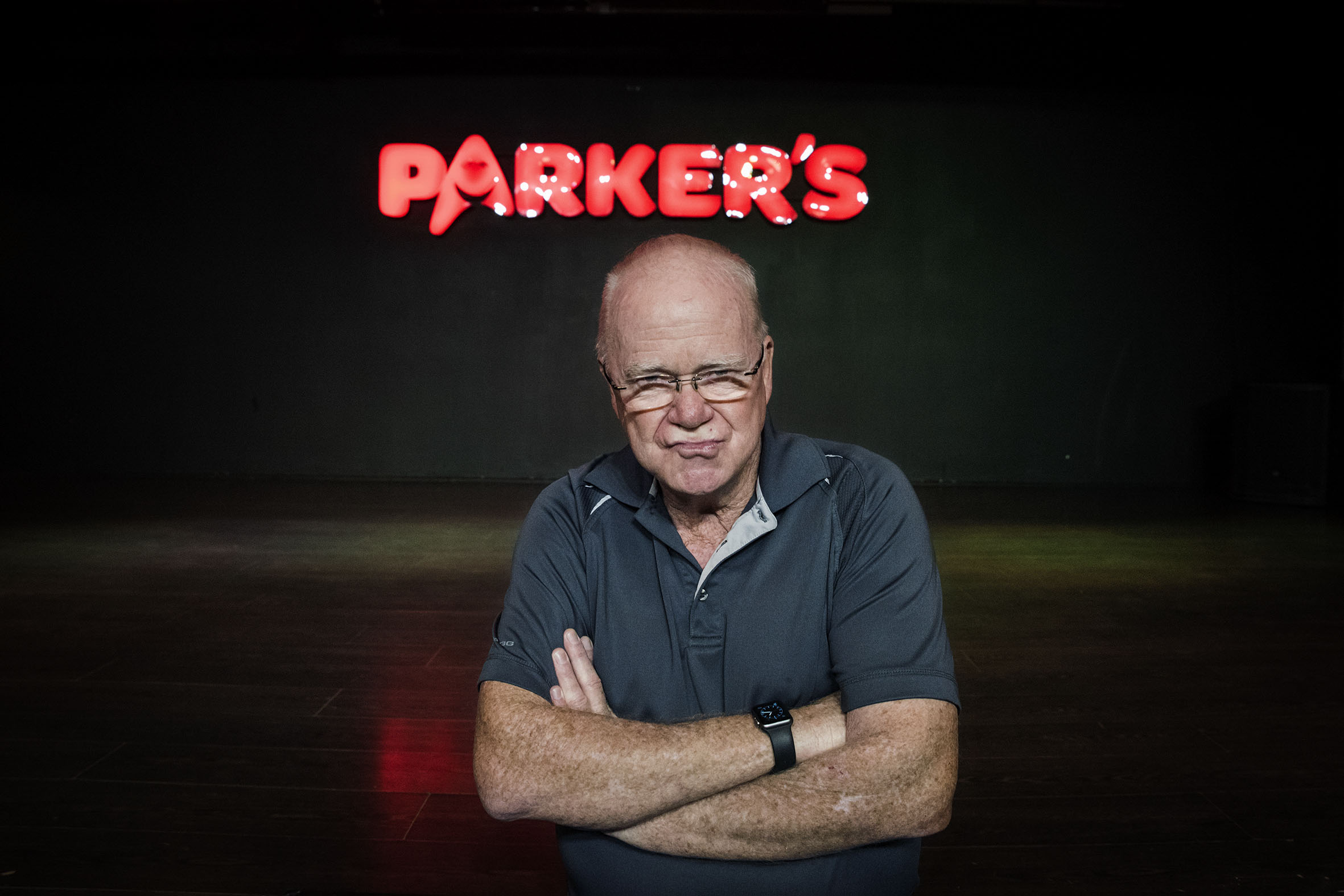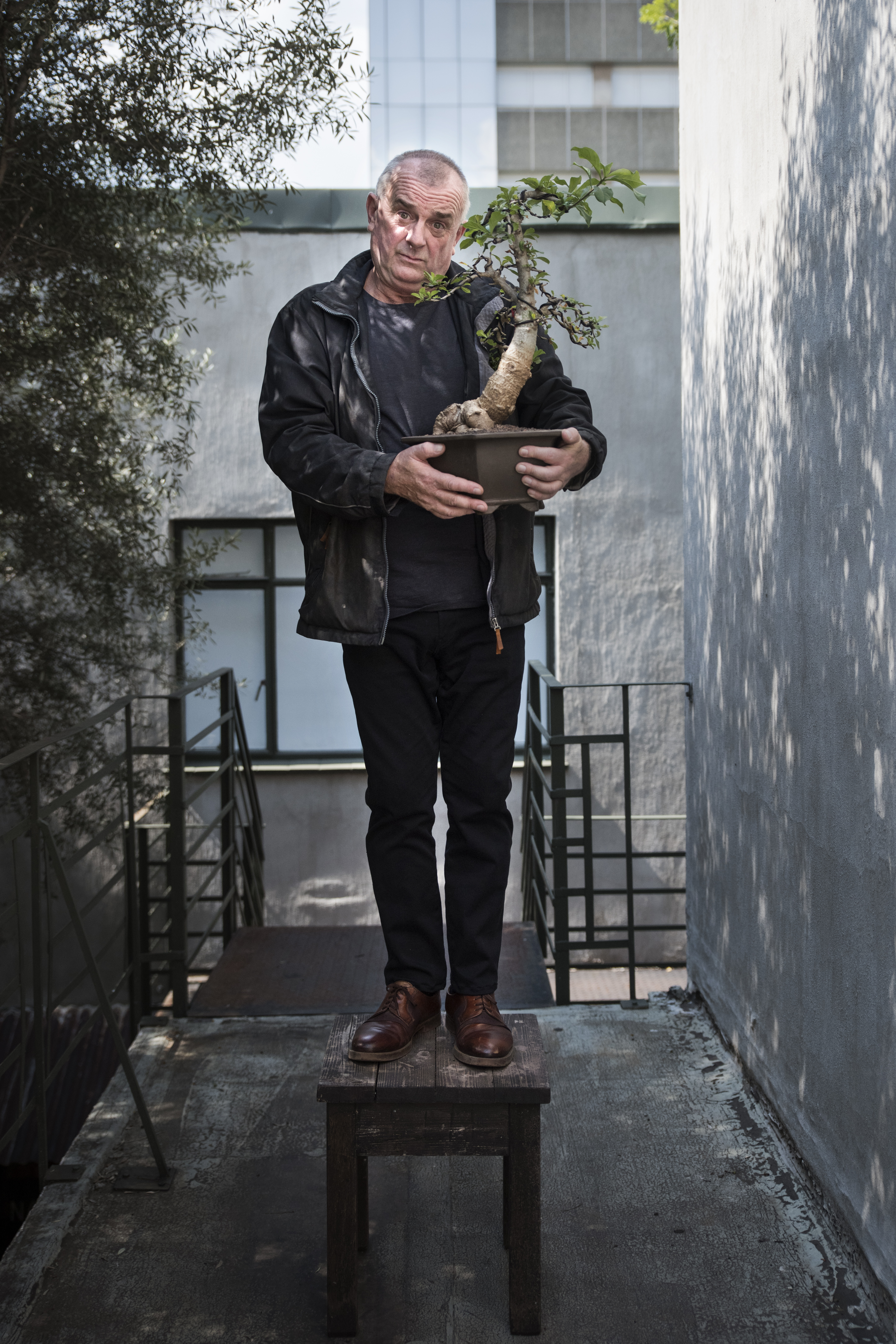Old school: Veteran comedians like Mark Banks approach comedy from varying angles.
Comedians tend to get wistful about what the changing times have rendered them less able to say. For some in the line-up of The Legends Live at Johannesburg’s Lyric Theatre, I presume the event offered a portal to travel back to less sensitive times.
It was sheer voyeurism that drew me there. For reasons I assume obvious, the names Eddie Eckstein, Tony de King, Joe Parker and Mark Banks only mean something to me peripherally. And yet, between these four guys, there are easily close to 200 combined years of life in showbusiness. I was curious about what that sounded like in front of a live audience, distilled to roughly two hours of stage time between all four acts.
Sticking out and being stared at was something I expected but what took me by complete surprise were the finer details of the demographics. For instance, how did it come to be that this was a mostly Caucasian and Indian affair? And, why was I the only one who didn’t get the memo? The simple answer, I suspect, may lie simply in who had a television set around the time when the comedians on the bill were making their debuts. Or, perhaps, was this a weird bond of convenience forged by the English language and its colonial history?
For the most part, the audience and the comedians seemed to have that puzzle worked out, with the flow of material centred on white existential angst broken up by liberally employed Indian jokes. Black people made it in as the butt of the jokes, too, but quite marginally, as this snippet by Parker might demonstrate: “It’s a silly concept that, getting married more than once. It’s like escaping from Alcatraz and swimming right back. That’s why black people never get divorced. Can’t swim. Now that’s a stereotype. Of course, black people swim, but it’s only on Boxing Day and New Year’s .”

[Old school: Veteran comedian Joe Parker approaches comedy from varying angles, with a focus on his club. Photos: Madelene Cronjé]
Parker continued in this vein for a fair amount of his set, making me suspect that it was a patented style. The basic modus operandi includes the introduction of a popular stereotype only to explain it to the audience, as if justifying its use, and then extending it further as if conducting a comedy clinic or simply adding a layer of complexity to his material.
Explaining the technique, some days later in an interview, he said: “There’s some things that you don’t want anybody to joke about. You might not say anything but it just doesn’t sit with you. Oftentimes, I’ll joke about something and I’ll see someone [respond to it] and I think to myself, ‘I wonder whether I should take the edge off of what I’m saying’. So I’ll do that, as a kind of … it’s therapy for me. But at the same time, sometimes, when you do that deconstruction, there is comedy in that.”
On the night, acts veered between that hypersensitivity that Parker speaks of and a less self-conscious approach, enhancing the feeling that one was indeed stepping back in time. The promotional material hinted at that, promising “a night of big laughs and nostalgia, and a tribute to the old Biltong and Potroast days”, a show featuring Eckstein that debuted on South African television in 1976.
A 2010 article on bizcommunity.com, speaking about the revival of Biltong and Potroast, calls it a show “devised in 1975 to pit South Africa’s finest comedians against comics from Europe in an improvisational contest which saw host Clackie McKay handing out points based on the quality of their jokes on a series of randomly selected topics”.
Of course, “finest comedians” holds true here only if we willingly admit the obvious lie by omission, the little white lie, if you will.
As Saturday’s show settled into a rhythm, it was clear that the white joke/Indian joke/self-deprecating joke was something of a formula, deployed over four distinct styles, each varying in levels of contemporaneity.
De King, for example, started off by explaining how he had been in the business for 50 years, how he had been married five times and how Indians “never got to 50”, always stuck on “fhorty nhine nhainty nhine”.
There were wedding jokes:
“Do you take this woman to be your lovely wedded wife?”
“I do.”
“I’ll give you another chance, are you freaking blind?”
Mandela jokes:
“The last time I met Nelson Mandela, I asked him, ‘What part of Ireland are you from?’ He said: ‘Robben Island’.”
There was a long section on Viagra:
“All it does is it stiffens me legs and I can’t go to the bathroom,” he said.
One about street names:
“Since I came here, they changed the names of the streets, isn’t it. It used to be Hans Strydom and Hendrik Verwoerd, now it’s John Doong Bong Bong Bigibigi bong bong.”
It was all non sequiturs with no segues, with an amusing musical bit at the end when De King — a guitar with a Rolling Stone logo strapped to his back — responded to the audience’s shouted-out colours in song.
The most contemporary among the foursome was definitely Banks, who performed in a more up-to-the-minute stand-up style, with the frequency tuned to the audience in attendance.

[Mark Banks’ set was the most contemporary at the The Legends Live comedy show (Madelene Cronjé)]
Banks started things off with a riff on our collective neurosis about personal safety (which, if truth be told, affects all of us to varying degrees) and moved on to our traffic-light culture. With Banks, the gag is always pushed to the far ends of sanity, thus making it relatable from every angle. “You can buy plastic bags of ready-made rubbish [at the intersection], that is shit you can’t even get at Woolworths,” he said. Banks explained that, during his career, his style evolved from more revue-based material to incorporating stand-up as he went along.
“I got into stand-up because I didn’t want to tell jokes,” Banks said to me in an interview a few days after his set. “I didn’t want to end up in bars, or in the corner of a restaurant, standing on a table, screaming at people who didn’t really want to listen. I preferred playing in theatres or in front of an audience who had really come to listen.”
During the course of our interview, Banks said something that brought a deeper shade of understanding to my own infinite pursuit of why we laugh as audiences and why comedians are doggedly drawn to the craft.
“Even if it is not true, a comedian’s view of why somebody says something is sometimes far more profound than the truth.
“You have got to stay one step ahead, or you have got to do something that is completely ridiculous.”
By ridiculous, I took Banks to mean something completely original.
“I don’t know what that is but that is where the cleverness comes in. In the delivery, where it’s got to go … it’s about how you press the buttons. Like Skhumba. Skhumba plays to stadiums. He has just hit the nerve, they relate to him. He knows exactly where to place it.”
It reminded me of a point comedian Daniel Friedman made years and years ago — that the conversation we are having about comedy in this country is not even that relevant to most people, because the real comedy stars in this country do not even speak English.
The Legends Live will be out on DVD and on DSTV Box Office later this year. Mark Banks’s Stark Raving Mark runs at the Pieter Toerien Theatre in Montecasino until April 1